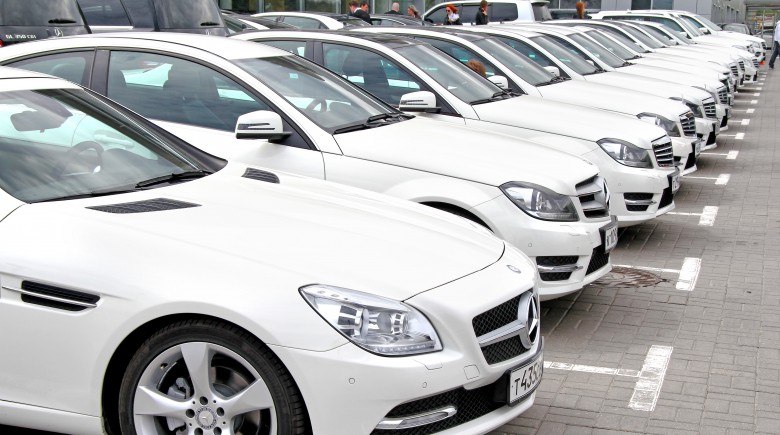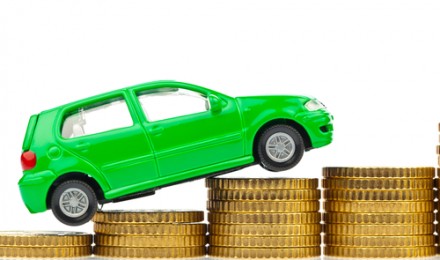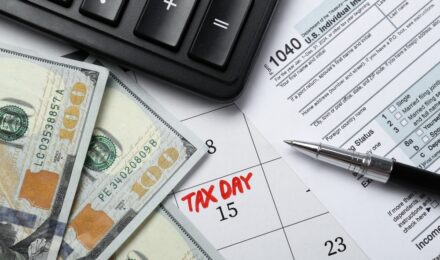Aside from the housing market, the auto sales market was one of the hardest hit areas during the recession. This is due to the fact that car buying is largely a discretionary purchase; meaning, those purchasing new cars generally do not need to make the purchase right away. As the buyers dropped off, dealerships were willing to take less of a profit just to keep the inventory moving off the lots. But now as the economy continues to surge forward, dealerships are having the opposite problem: they cannot keep cars on the lot long enough. Subsequently, there are fewer deals out there as people are paying full price for their vehicles.
The National Automobile Dealers Association recently released their report showing that in July light vehicle sales have increased 14% from the previous year. This double digit increase in sales is actually quite rare, and there are a multitude of factors that go into making people want to flock to the car lots and pick up a new car.
The most important aspect of a person’s willingness to buy a new car is whether or not they have the money to do so. In 2007 and 2008 people were losing their jobs or having their hours cut back. This caused people to put off the car buying decision, and caused 2009 to be one of the worst buying years in recent history. The slump in sales led to the auto manufacturers needing bailout money. Fast forward a few years and America is getting back to work. There is more money flowing, and thus there are more people willing to buy a new car.
Combine that increase of income with interest rates that are still quite low, and you get people who can buy a more expensive car and still afford the monthly payments. So despite the fact that sticker prices have increased, and the fact that it is harder to get a deal on a new car, the cars are still selling rapidly.
There is always a desire for the newest and latest technology. Car manufacturers understand this, and that is why you see vehicles that incorporate Bluetooth technology, GPS Navigation Systems, and various other perks. Many of the popular vehicles, such as the Nissan Sentra, were redesigned recently adding this new technology as a standard feature rather than an upgrade. Make the engine more efficient, and some dealerships that normally have 15 – 20 of these vehicles on hand are seeing inventories in the low single digits.
When a dealer has just a handful of vehicles on hand, they are very unlikely to give you a deal. They know if they wait a few hours someone will walk in the door willing to pay full price. So how do you get a good deal even though inventories and sales are showing that it is next to impossible? The best way is to do a lot of homework before you even walk into the dealership. Pick up the phone and call a few car lots to find out the prices, and then start pitting them against each other. You might not get anything knocked off the price of the car, but you could get upgrades and perks (such as free oil changes for life, extended maintenance packages, and the like) thrown in for free. If you are in the habit of buying a new car often, continually use the same dealer. They will reward the repeat business with deals on your cars. But until production picks back up and allows the lots to once again become laden with vehicles, don’t expect to find any great deals out there.
Aside from the housing market, the auto sales market was one of the hardest hit areas during the recession. This is due to the fact that car buying is largely a discretionary purchase; meaning, those purchasing new cars generally do not need to make the purchase right away. As the buyers dropped off, dealerships were willing to take less of a profit just to keep the inventory moving off the lots. But now as the economy continues to surge forward, dealerships are having the opposite problem: they cannot keep cars on the lot long enough. Subsequently, there are fewer deals out there as people are paying full price for their vehicles.
The National Automobile Dealers Association recently released their report showing that in July light vehicle sales have increased 14% from the previous year. This double digit increase in sales is actually quite rare, and there are a multitude of factors that go into making people want to flock to the car lots and pick up a new car.
The most important aspect of a person’s willingness to buy a new car is whether or not they have the money to do so. In 2007 and 2008 people were losing their jobs or having their hours cut back. This caused people to put off the car buying decision, and caused 2009 to be one of the worst buying years in recent history. The slump in sales led to the auto manufacturers needing bailout money. Fast forward a few years and America is getting back to work. There is more money flowing, and thus there are more people willing to buy a new car.
Combine that increase of income with interest rates that are still quite low, and you get people who can buy a more expensive car and still afford the monthly payments. So despite the fact that sticker prices have increased, and the fact that it is harder to get a deal on a new car, the cars are still selling rapidly.
There is always a desire for the newest and latest technology. Car manufacturers understand this, and that is why you see vehicles that incorporate Bluetooth technology, GPS Navigation Systems, and various other perks. Many of the popular vehicles, such as the Nissan Sentra, were redesigned recently adding this new technology as a standard feature rather than an upgrade. Make the engine more efficient, and some dealerships that normally have 15 – 20 of these vehicles on hand are seeing inventories in the low single digits.
When a dealer has just a handful of vehicles on hand, they are very unlikely to give you a deal. They know if they wait a few hours someone will walk in the door willing to pay full price. So how do you get a good deal even though inventories and sales are showing that it is next to impossible? The best way is to do a lot of homework before you even walk into the dealership. Pick up the phone and call a few car lots to find out the prices, and then start pitting them against each other. You might not get anything knocked off the price of the car, but you could get upgrades and perks (such as free oil changes for life, extended maintenance packages, and the like) thrown in for free. If you are in the habit of buying a new car often, continually use the same dealer. They will reward the repeat business with deals on your cars. But until production picks back up and allows the lots to once again become laden with vehicles, don’t expect to find any great deals out there.






